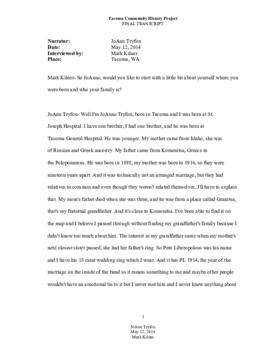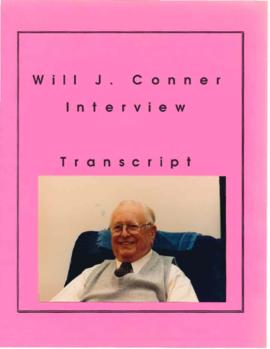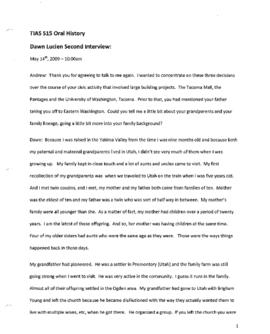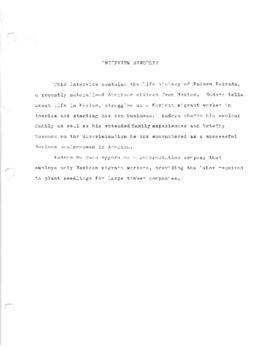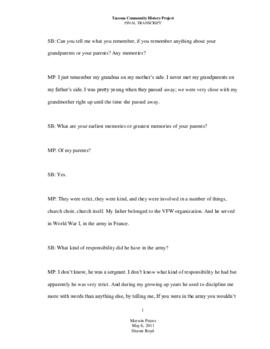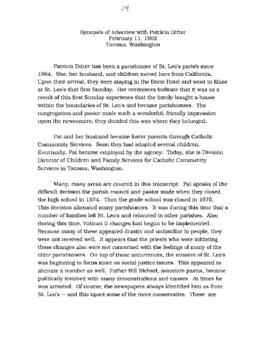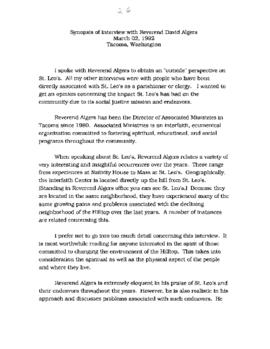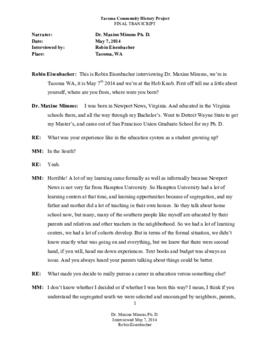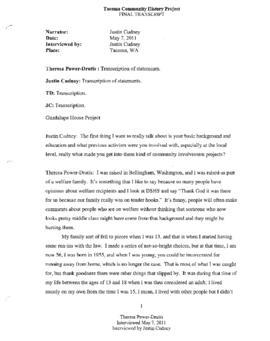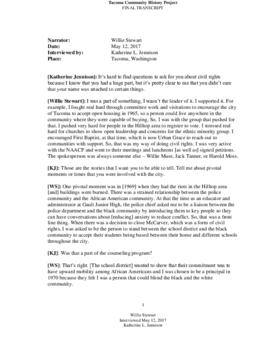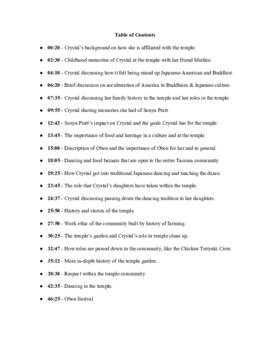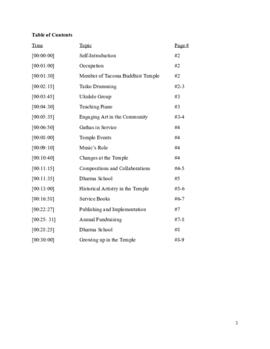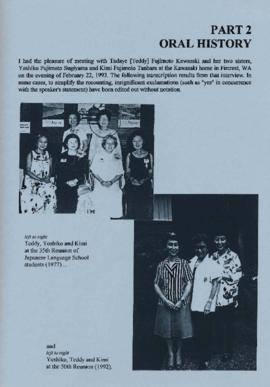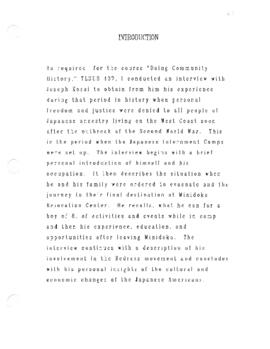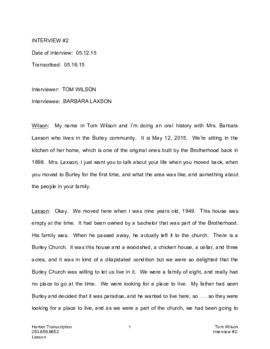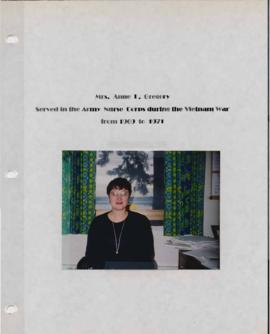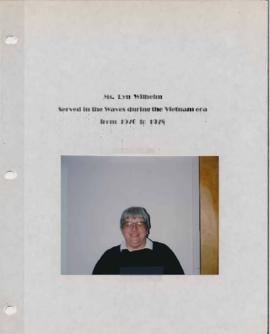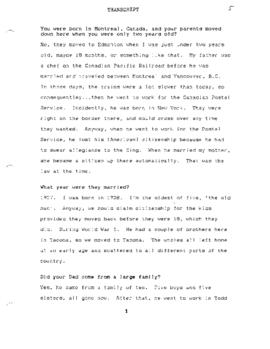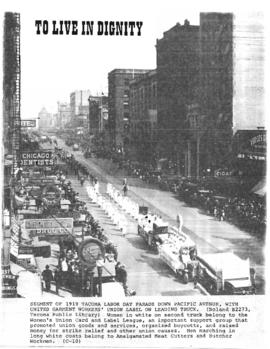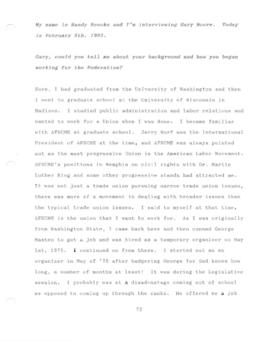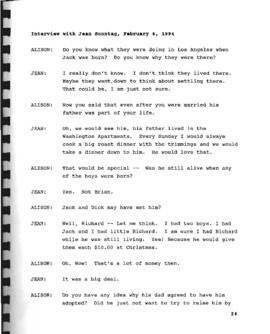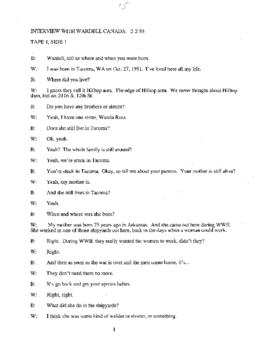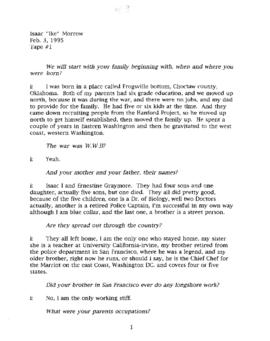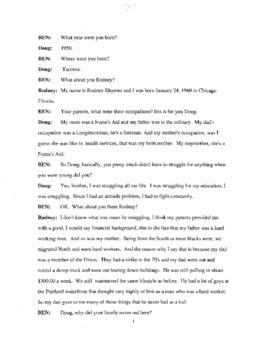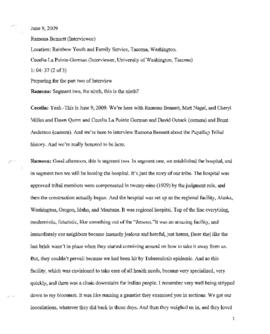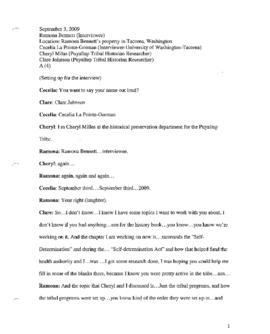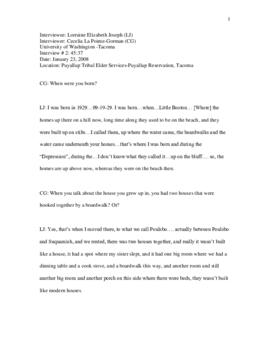Showing 230 results
Collections153 results with digital objects Show results with digital objects
- Item
- 1991
Oral history interview with Eudoro Estrada by Deborah D. Boyd conducted 05/03/1991. The interview discusses Eudoro Estrada's life in Mexico, his struggles when he first arrived in the United States, and his efforts to start and maintain what became a successful reforestation business. Estrada also describes his family life and briefly touches upon the discrimination he encountered as a Mexican American businessman in Washington State.
Serving on the USS Mason: Breaking Racial Barriers in the U.S. Navy
- Item
- 2011
Oral history interview with Merwin Peters by Shawn Boyd conducted 05/06/2011. World War II veteran Merwin Peters shares the history of the USS Mason and describes his experiences as an African-American sailor serving just prior to military desegregation. Frequent references are made to Mary Pat Kelly, whose 1995 book ""Proudly We Served: The Men of the USS Mason"" brought the story of the Mason and her crew to public attention.
- Item
- 2014
Oral history interview with Maxine Mimms by Robin Eisenbacher conducted 05/07/2014. Maxine Mimms discusses her educational experiences as well as efforts to develop educational opportunities for the African-American community in the Hilltop area of Tacoma, Washington. Mimms is the founder of the Evergreen State College Tacoma branch as well as the Maxine Mimms Academy, an educational outreach program.
- Item
- 2011
Oral history interview with Theresa Power-Drutis by Justin Cudney conducted 05/07/2011. Theresa Power-Drutis discusses her involvement with Guadalupe House and other G Street Community projects. A carpenter and lifelong activist, Power-Drutis recounts her arrival in Tacoma in 1979 and describes the sense of social justice and community pride that has driven Hilltops recent revival. Father Bill Bichsel, social activist and co-founder of the G Street Community, is also discussed at length.
When Races Collide: Willie Steward and the Voluntary Desegregation of Tacoma Public Schools
- File
- 2017
Oral history interview with Willie Stewart by Katherine L. Jennison conducted 05/04/2017, 05/12/2017. On the heels of the Brown v. Board of Education decision and the Civil Rights Act of 1964, the Tacoma School District took voluntary measures to desegregate a select number of schools with high non-white enrollment. The district superintendent, Dr. Angelo Giaudrone, drew attention to the de facto segregation, and primarily focused on two elementary schools: Stanley Elementary, with a black population of 64 percent and McCarver Elementary, with a black population of 84 percent. In 1963, a subcommittee was formed to analyze and study the de facto segregation and provide recommendations for potential solutions. On July 8, 1966, a plan was announced by the school board for an optional enrollment program that relied on closing McCarver Junior High and to provide limited open enrollment to students affected by the closing. The district hired its first black principal, Willie Stewart, in 1970 in order to bridge the divide between the school district and the black community. Stewart led the summer counseling program to work with families on the transition between the closing of their neighborhood school and their new school of their choice. According to the United States Commission on Civil Rights a decade later, the summer counseling program was pivotal to the success of the voluntary desegregation program in the Tacoma School District.
Why Internment? The Story of Japanese-Americans During World War II
- Item
- 1991
Oral history interview with Joseph Kosai by Arlene Mihara conducted 04/19/1991. The interview recounts Joseph Kosai's personal experiences as a Japanese American citizen forced to evacuate his Tacoma, Washington residence on May 18, 1942 in response to the issuing of Executive Order 9066. Joseph, who was eight at the time, was transported with family members, first, to an assembly center in Pinedale, California, then to Tule Lake, where Kosai's extended family was dispersed and sent to different camps. Joseph, his mother, and younger sister were sent to the Minidoka Relocation Center in Idaho, where they would remain until May 17, 1945. In the interview, Kosai recalls his impressions of life in the internment camp. He also describes his readjustment after being released from Minidoka, as well as the impact of discrimination upon his subsequent educational and career opportunities. He also discusses his involvement in the national redress movement and other civil rights issues.
The Burley Community: Preserving the Past
- File
- 2015
Oral history interviews with Maria Moore and Barbara Laxson by Tom Wilson conducted 05/11/2015, 05/12/2015. The Burley Utopian Community was part of the growing Social Equity Movement of the latter part of the 19th and early part of the 20th centuries. The origin of the idea of seeding the United States with Socialist Communities came from an organization led by Eugene V Debs. Debs was a veteran of the labor troubles that gripped the nation beginning in the 1880's and culminated with the deaths of thirteen workers during the Pullman Strike. Debs began to believe that the only hope for the workingman was Socialism. With that in mind the national Socialist organization looked for opportunities to spread the Socialism, Washington State was selected as the site of the colony, chosen because of its history of labor activism and a smaller population that would be sympathetic to the cause. Thus was born the town/colony of Brotherhood, a name that was soon surrendered for the commonly used, Burley. Plagued with troubles from the onset, the colony lasted only 15 years. This is story of a community that has survived, not so much physically, but in spirit, a spirit that still holds this small community together today. That spirit can be seen in the words of Barbara Laxson who is a longtime resident who lives in one of the original homes built by the colony where an oral history was recorded. It can also be heard in the words of Maria Moore, an American citizen born in Mexico who lives now in Burley. Mrs. Moore, is a former member of the Burley Community Association the group that is charged with maintaining the community properties, her interview was conducted in the community park. In their words you can begin to understand why it is so important to try to keep and keep the history and the name Burley alive today.
An Interview with Luke Joinette
- Item
- 1991
Oral history interview with Luke Joinette by Cyndi Pierce conducted 05/04/1991. Luke Joinette, former Executive Board member and secretary-treasurer for the Tacoma chapter of the Hotel and Restaurant Employees and Bartenders International League, discusses his work with the Local 61 labor union. Recounting the events surrounding the unions 1969 strike, Joinette reflects on the confrontations between picketers and employers and between the local chapter and its national affiliate. He concludes with some thoughts on the current state of the Local 8, the newest incarnation of the Local 61, and on the unions sharp decline in membership since the 1970s.
